Good food, good drink, and good people.
Three of my favorite things in the world collided last weekend at my very first year of participating in Wine Camp, an annual tradition which I was invited to by my dear Leanna and her mother, Lanette. We spent last Saturday hopping between local wineries sampling the local fare.
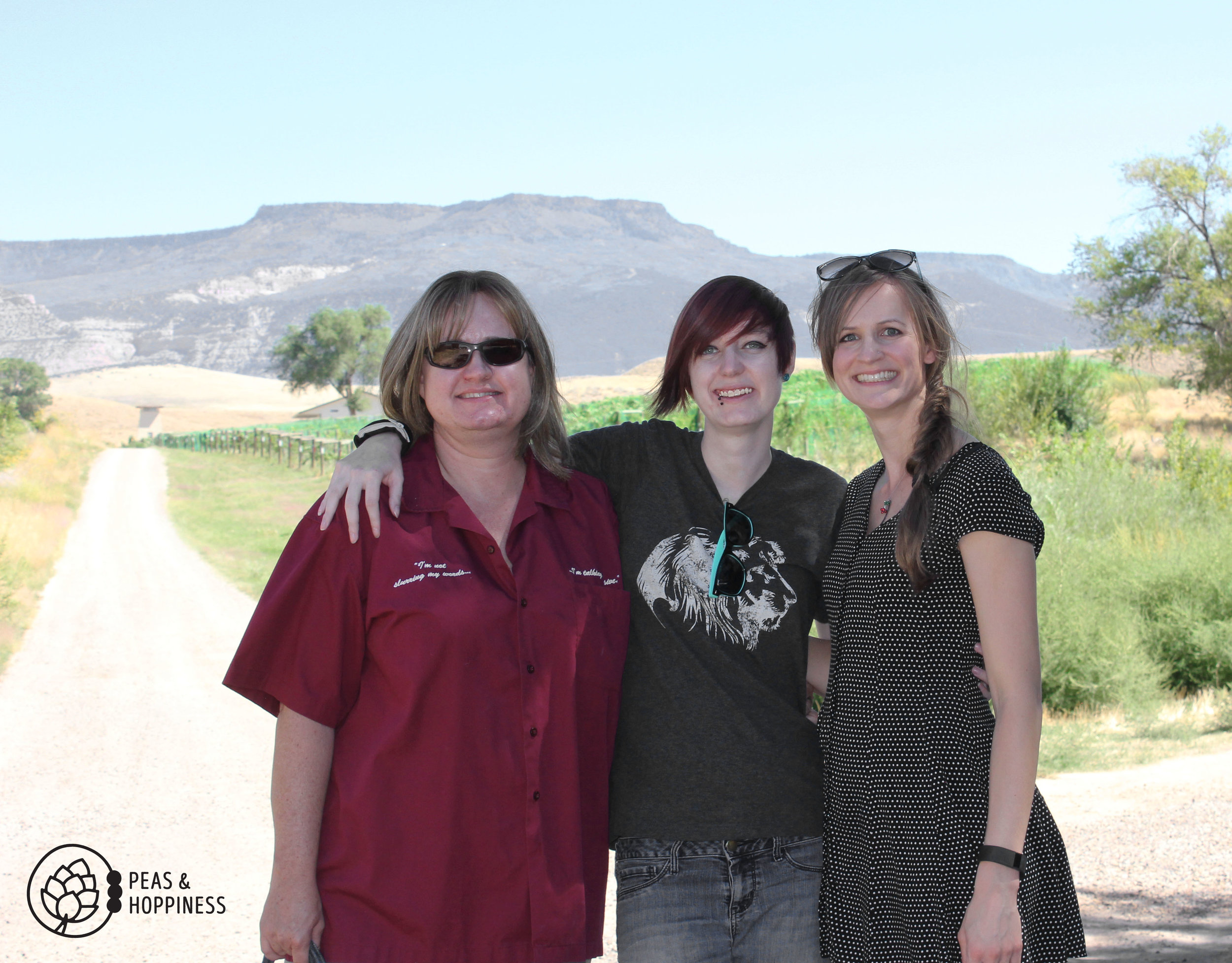
Lanette, Leanna, and me – with the grapes behind us and the mesa in the background.
Every year, Lanette organizes a group of friends to take a trip to Grand Junction and Palisade, Colorado, where some of the most interesting and tasty wines are fermented. Many years ago this trip was dubbed Wine Camp, as this was where the parents spent the weekend while their high-schoolers went to Band Camp. It seems like a logical thing to me.
As you’ve probably noticed, I’m a really big fan of both fueling my body and fueling my soul. I absolutely love it when these two things intersect. As it happens, wine is one of these delightful aliments.
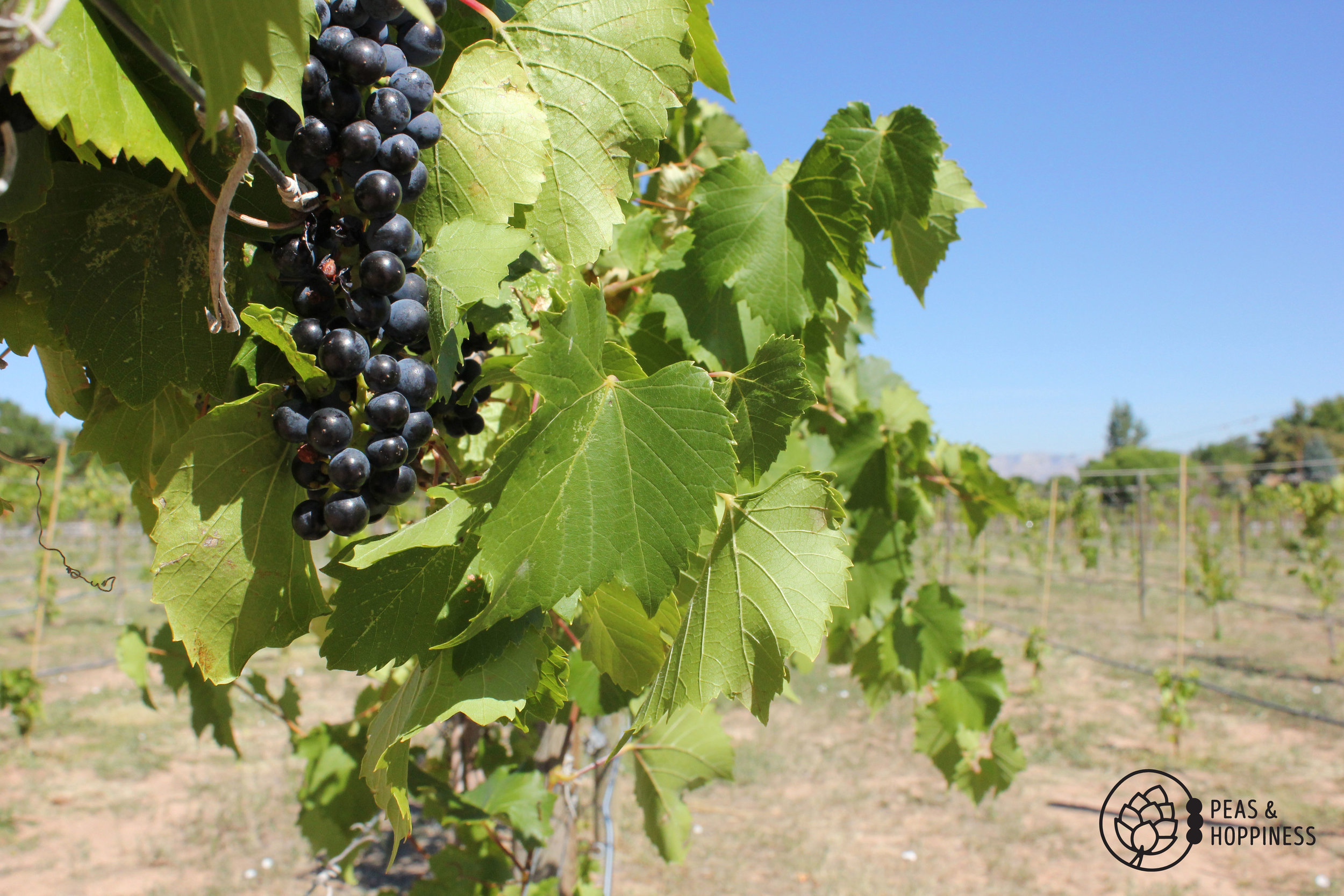
Resveratrol, the Darling of Red Wine
Resveratrol is the antioxidant that give the purple skin of grapes – and thus, red wine – its color. This phytonutrient has been shown to help prevent platelets from sticking together in the blood and thus prevent clots that could cause heart attack or stroke – an effect similar to that of aspirin (2).
Of course, resveratrol is not unique to wine, as unfermented red grapes, peanuts, blueberries, and cocoa, for example, also contain this nutrient. However, the chemical composition of resveratrol in these alternative foods is slightly different, so it’s not clear if these other sources have the same benefits as wine. An epidemiologic study done in Italy measured the amount of resveratrol metabolites in the urine and found no correlation with all-cause mortality or cardiovascular disease.
Should you take a supplement of resveratrol? My general answer is no (check out my previous blog about supplementation). There is just not enough information about the dosage, safety and toxicity, or purity of supplement for me to recommend supplementation in good conscience.
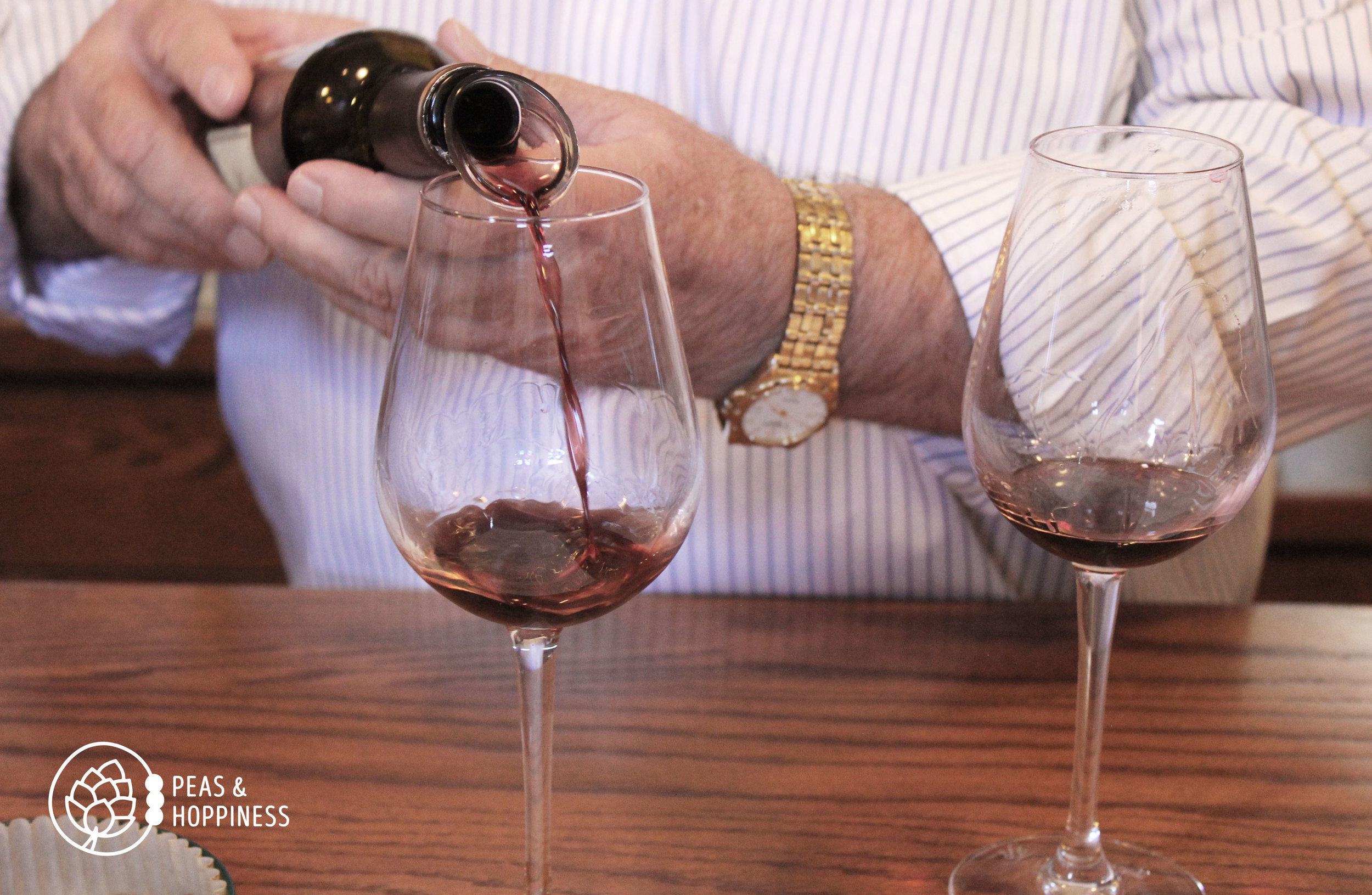
Wine & Health
Cardiovascular Disease
Probably the most popular health benefit of wine is that of reducing Cardiovascular Disease (CVD). Wine – and actually, alcohol in general – in moderation has been associated with decreased risk of heart attack and stroke.
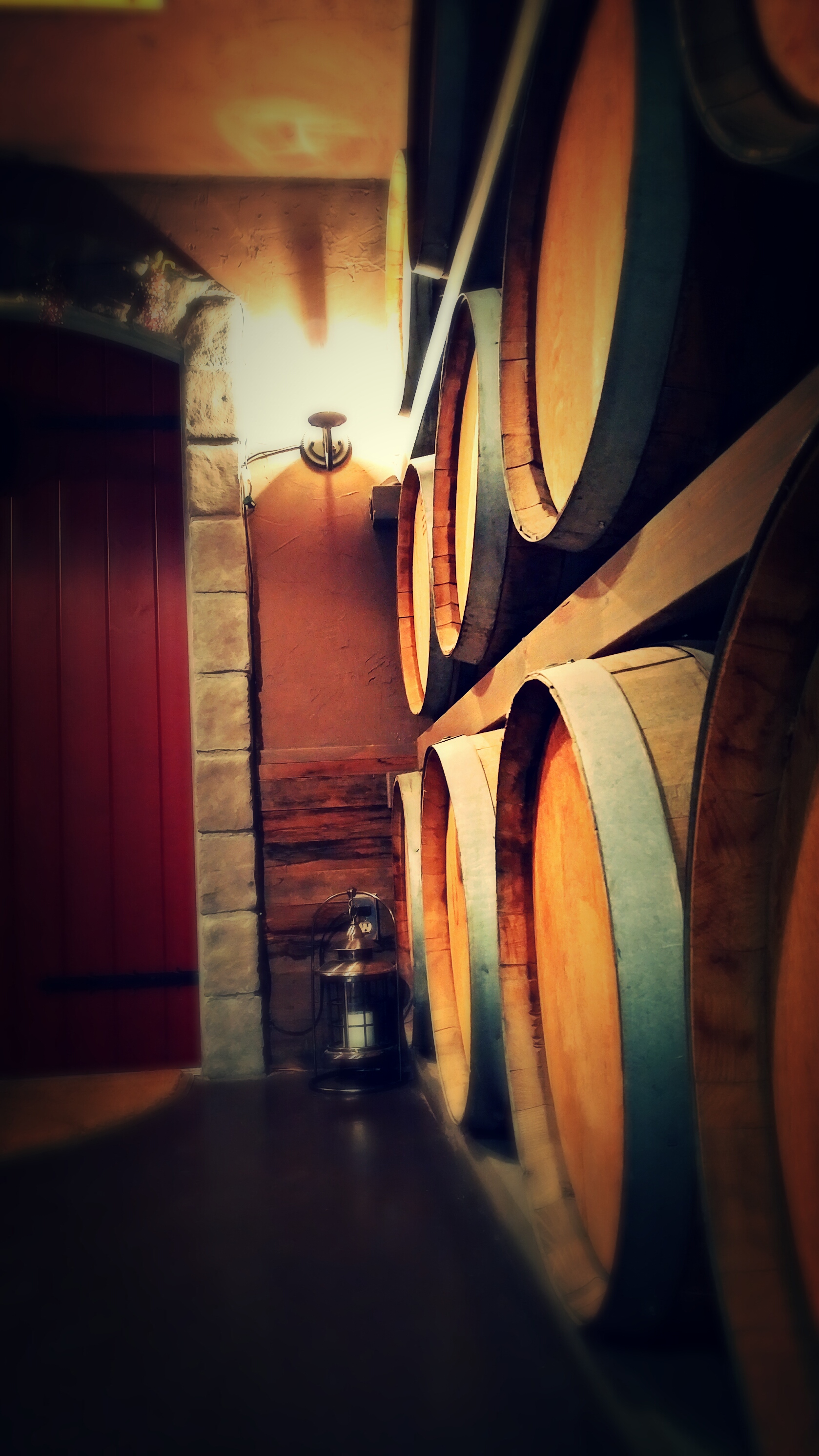
Photo by Leanna Turley
Alcohol itself – not just from wine – has been shown to lower risk of cardiovascular disease by slightly increasing HDL, the good cholesterol that is cardioprotective. Of course there are other ways to naturally increase HDL, such as increasing physical activity or substituting healthy fats (mono- and poly-unsaturated) for unhealthy fats (trans and saturated) (2).
Resveratrol, as I mentioned before, may also play a part in decreasing the risk of CVD through its antioxidant and anticoagulant effects. However, there are still a lot of unanswered questions as to how much and which type of resveratrol is best (3).
Cancer
Not surprisingly, excess consumption of alcohol of any kind leads to increased risk of several different types of cancer, including liver, oral, pharangeal, and throat cancer.
However, even in moderation, alcohol consumption can increase risk of breast cancer in women. Drinking one drink per day (which is considered moderate consumption for women) increases the risk compared to not drinking at all, and the risk of breast cancer increases with the amount of alcohol that is consumed.
Although resveratrol has been shown to have anti-cancer properties, there have been no human studies showing a causal effect between drinking wine and decreasing cancer risk (1).
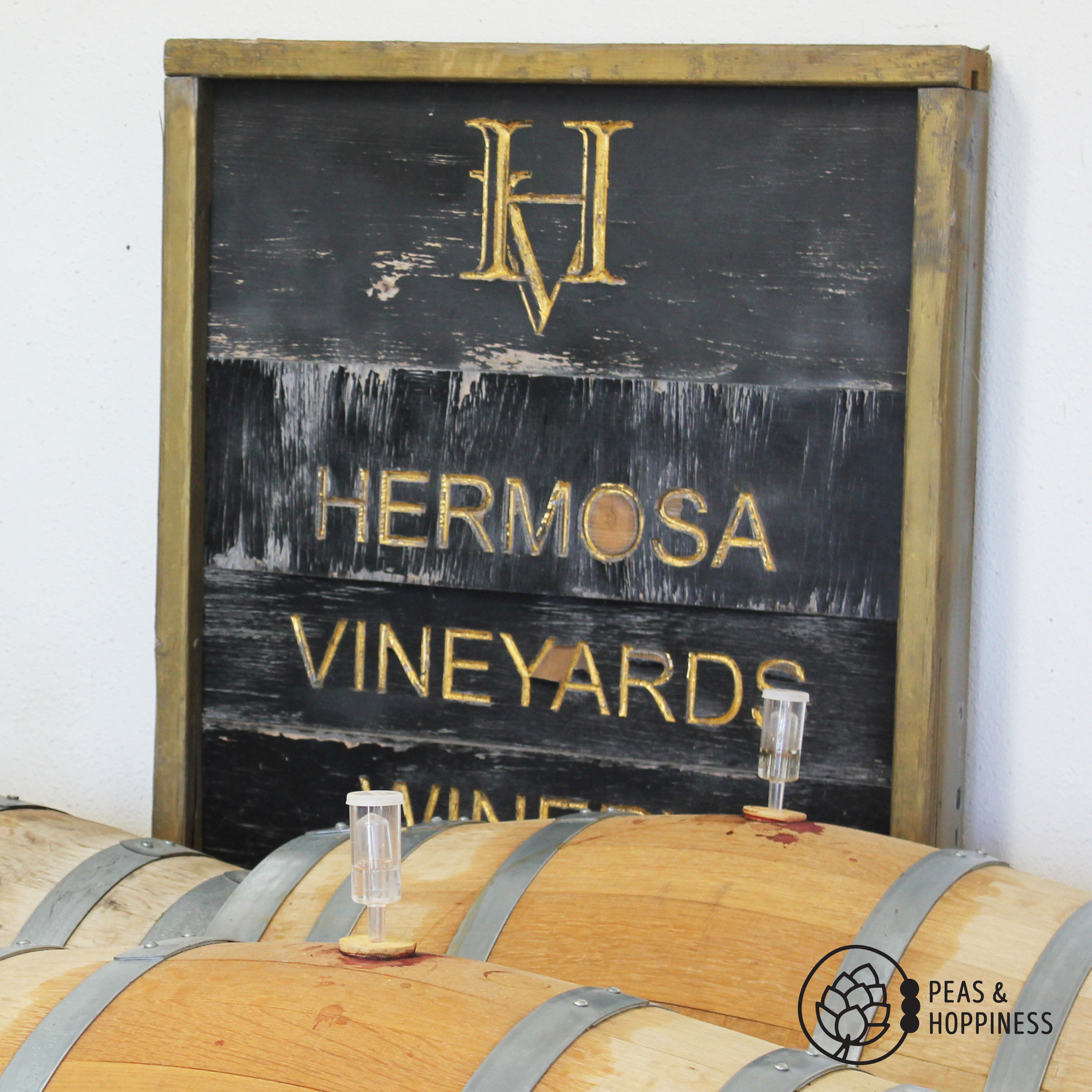
Alzheimer’s Disease and Dementia
Like the aforementioned disease, the risk or benefit of alcohol for the brain depends on the dose. It’s known that alcoholism and excessive drinking increase the risk of dementia and Alzheimer’s disease, but there is some evidence that moderate intake may have a protective effect.
Like heart disease, alcohol’s benefit to the brain may be related to its vascular effects. There have been some epidemiological studies linking moderate consumption with decreased risk of Alzheimer’s Disease and dementia (4).
The Bottom Line
Can you guess? Yes, that’s right. Moderation. Everything in moderation, folks.
The recommendation by the American Heart Association, the American Cancer Society, and the 2015 Dietary Guidelines for Americans all recommend moderate consumption of alcohol, which is:
Women: 1 Drink (or less) per day
Men: 2 Drinks (or less) per day
They also don’t recommend starting to drink if you don’t already, which seems to be a widely misunderstood concept. There are many other ways to achieve similar benefits to wine as those listed above via other lifestyle means such as healthy diet and exercise.
Nonetheless, it appears that as long as you’re safe (don’t drink and drive, folks!!), don’t over-indulge, and make sure to count the calories in alcohol so you stay within a healthy energy balance, wine and other types of alcohol can be enjoyed in moderation.
So, cheers to you! May a Wine Camp be in your future some day, too.
With love, from Peas and Hoppiness
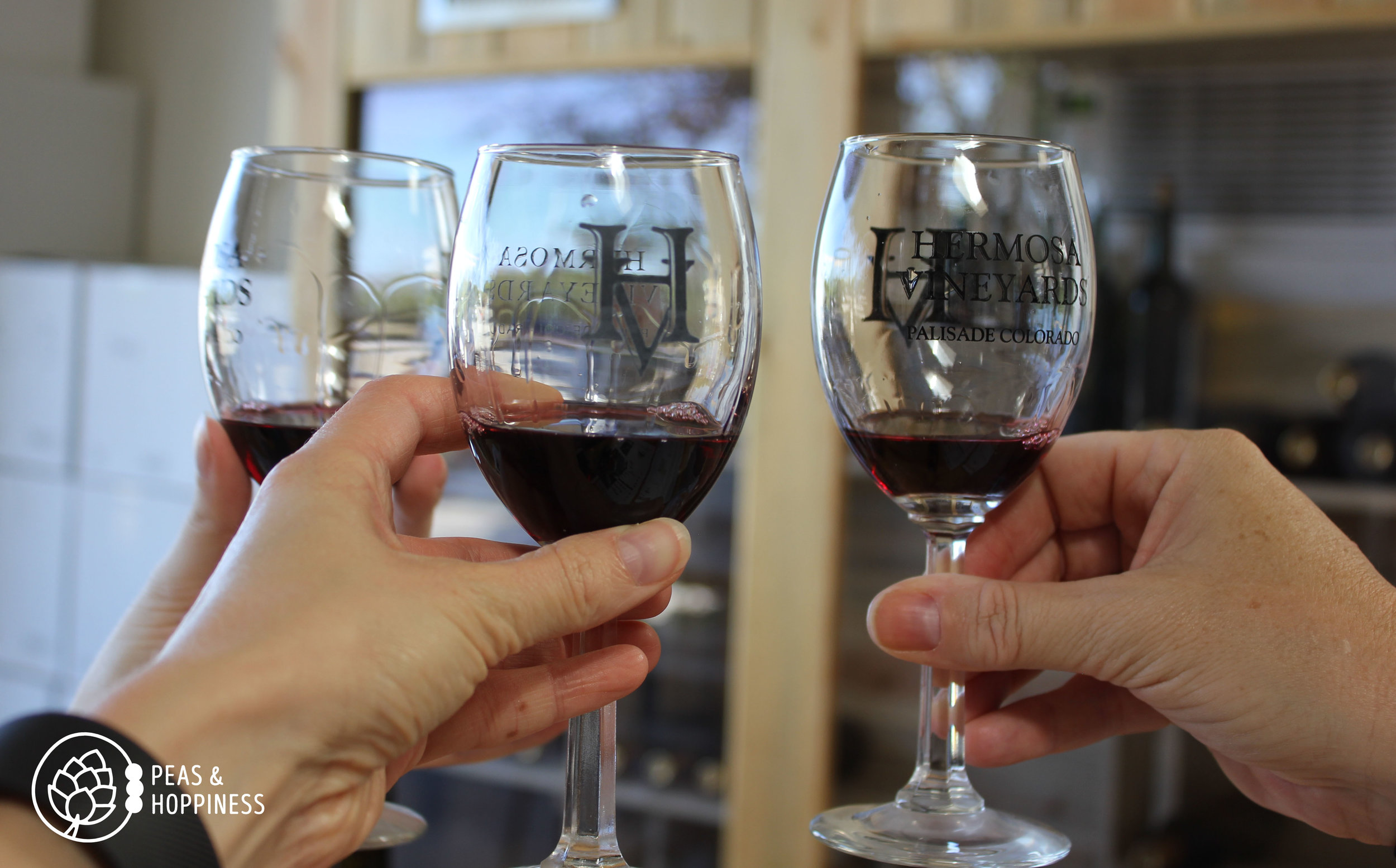
Additional sources used for this blog:
1. Alcohol and Cancer Risk – American Cancer Society. (2013, June 24). Retrieved September 11, 2016, from http://www.cancer.gov/about-cancer/causes-prevention/risk/alcohol/alcohol-fact-sheet#q6
2. Alcohol and Heart Health – American Heart Association. (2015, January 12). Retrieved September 11, 2016, from http://www.heart.org/HEARTORG/HealthyLiving/HealthyEating/Nutrition/Alcohol-and-Heart-Health_UCM_305173_Article.jsp#.V9SyuZgrLIU
3. Godman, H. (2014, May 15). Diet rich in resveratrol offers no health boost – Harvard Health Blog. Retrieved September 11, 2016, from http://www.health.harvard.edu/blog/diet-rich-resveratrol-offers-health-boost-201405157153
4. Tyas, S. L. (n.d.). Alcohol Use and the Risk of Developing Alzheimer’s Disease. Retrieved September 17, 2016, from http://pubs.niaaa.nih.gov/publications/arh25-4/299-306.htm